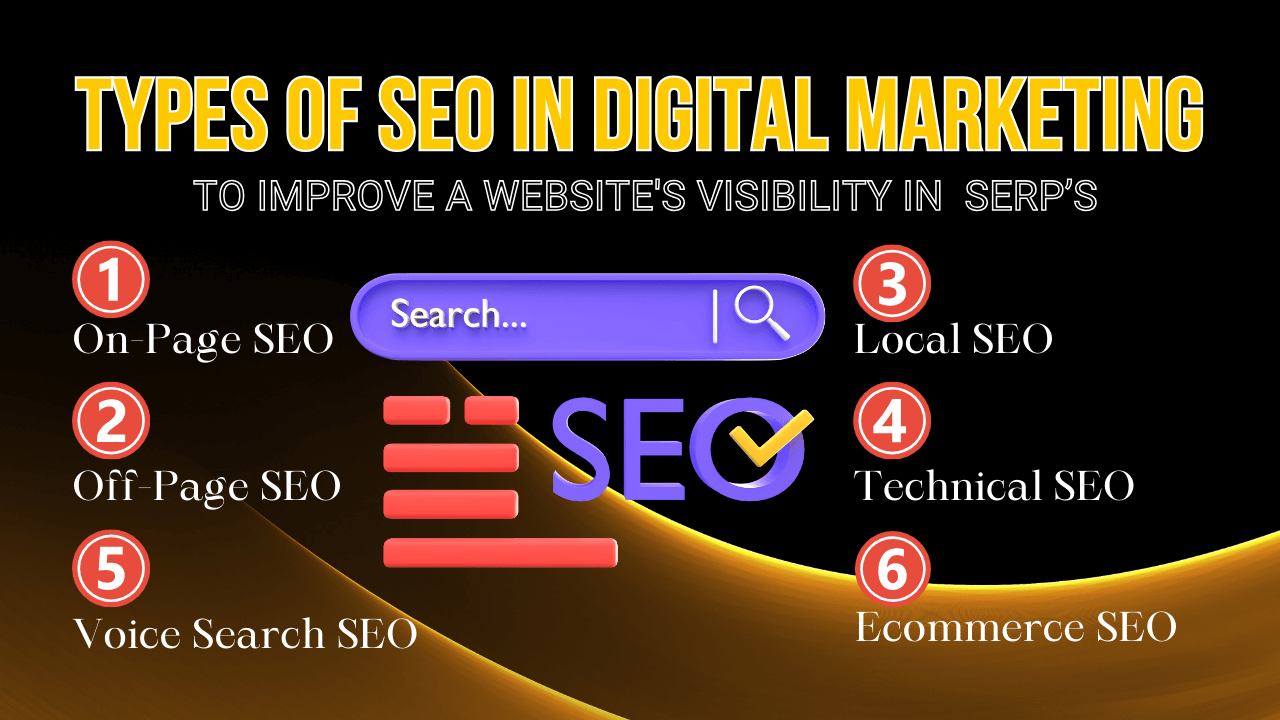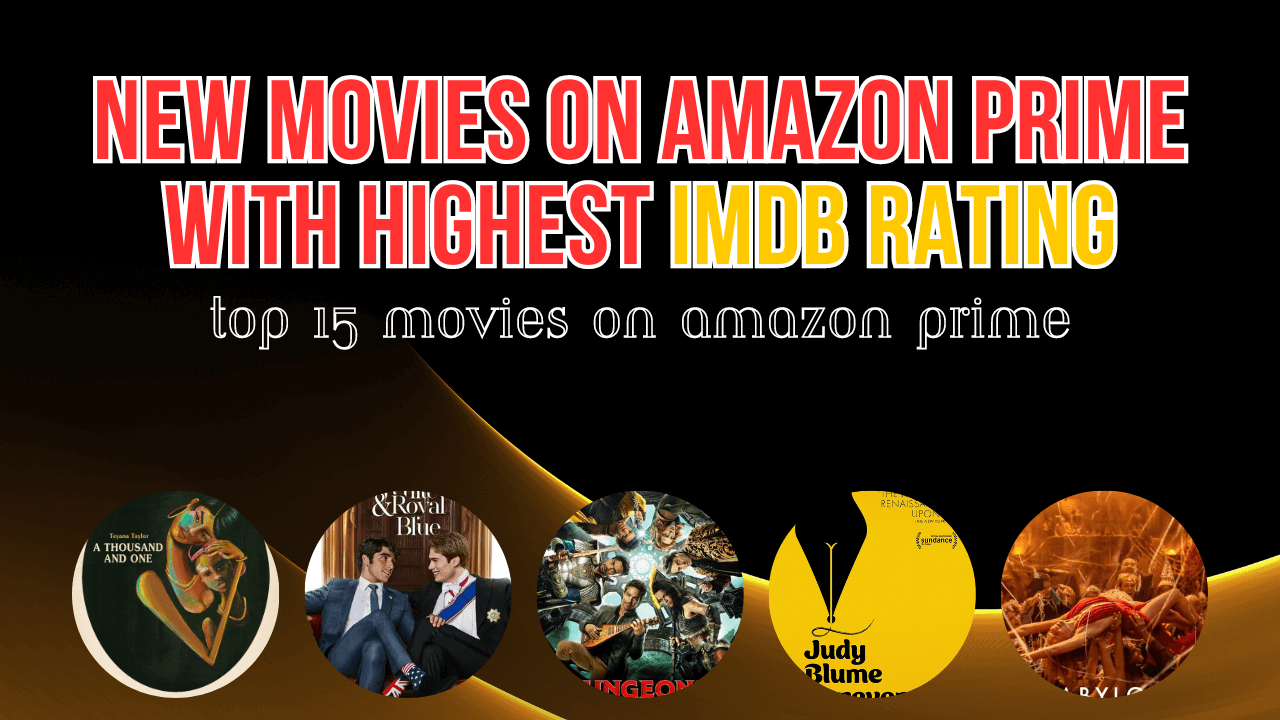Top 10 AI Marketing Apps & Benefits – Power of Artificial Intelligence
2 years agoTop Reasons Why Blogging Is Not Dead ! 9 proven ways to Success
2 years ago -

In 2025, the big question on every blogger’s mind is, “Is there still a place for blogging in the future, or are blogs still a thing? Is Blogging Dead? Hell No! Yet, Blogging is not dead. It’s Evolving with AI Tools.
Let’s address the elephant in the room – there’s been a lot of chatter lately about whether blogging is dead. With the rise of AI tools like ChatGPT, Claude.ai, Gemini, and many more, some people are wondering if these fancy AI tools will make human bloggers outdated.
Well, let me tell you something – blogging is not dead anytime soon! I’d argue it’s more alive than ever, thanks to the evolution of technology and the creativity of human minds.
Blogging has come a long way since its inception, with an estimated 600 million blogs out there covering every niche imaginable. The competition is more than ever, and engagement strategies keep evolving. Established bloggers continue to inspire with their success stories, demonstrating that blogging still holds tremendous potential for those who can innovate and adapt.
In my own journey as a blogger, I’ve witnessed the rapid evolution of content creation and audience interaction. It’s been a rollercoaster ride, but one thing is certain – the craving for valuable content never dies. Blogging is not Dead, Yet.
Table of Contents
How Many Websites in the World?
There are over 1.7 billion websites out there on the World Wide Web (as of early 2023). That’s a mind-boggling number! And you know what? A significant chunk of those sites are blogs.
Will ChatGPT and AI replace Blogging?
Nope, not a chance! While AI tools are undoubtedly impressive, they still lack the human touch that makes great blog posts truly resonate with readers. Sure, an AI might be able to string together a coherent piece of content, but it can’t inject that personal flair, unique voice, and authentic storytelling that human bloggers bring to the table.
Just this month, I was struggling to write a blog post about the digital marketing and SEO which is my area. I had all the facts and figures, but the draft just felt… well, boring. That’s when I decided to incorporate some personal stories about my own marketing adventure for different business.
Suddenly, the post came alive! Those personal touches made the content feel relatable, engaging, and genuinely interesting to read.
Could an AI have done that? Maybe to some extent, but it would lack the genuine emotion and firsthand experiences that made my post truly special.
Challenges and Threats to Blogging
Undoubtedly, the rise of AI tools and automation presents new challenges for traditional blogging practices. While AI-generated content can streamline certain processes, it can’t replicate the authentic, personal touch that bloggers bring to their writing. This means evolving our strategies to embrace technology while staying true to our unique voice and brand.
Moreover, the dynamics of reader preferences and consumption patterns are constantly shifting. In response, it’s crucial for bloggers to adapt and continually experiment with new formats and channels to keep their audience engaged.
The Future of Blogging is not dead
So, what does the future hold for blogging? Well, AI tools like ChatGPT are going to play a bigger role in content creation. But here’s the thing – they’re not meant to replace human bloggers altogether. Instead, they’re designed to complement and assist us in the writing process.
Think of it like having a super-smart writing buddy who can help you brainstorm ideas, do research, and even draft rough outlines. Pretty neat, huh?
Blogging Is Not Dead – It’s Simply Evolving!
The way I see it, blogging is not dead – it’s simply evolving with the times. Just like how the printing press didn’t kill storytelling, and radio didn’t kill music, AI tools won’t kill blogging. They’ll just change the way we approach the craft.
Think about it – AI can handle some of the more tedious tasks involved in blogging, like research, fact-checking, and maybe even rough drafting. This frees up human bloggers to focus on what they do best: crafting compelling narratives, injecting personality, and forging meaningful connections with their audience.
Google Wants You to Find the Best Stuff Online: E-E-A-T Explained
Imagine you’re searching for info online. Google wants to make sure you don’t end up on unreliable websites with bad advice. That’s where E-E-A-T comes in! It stands for:
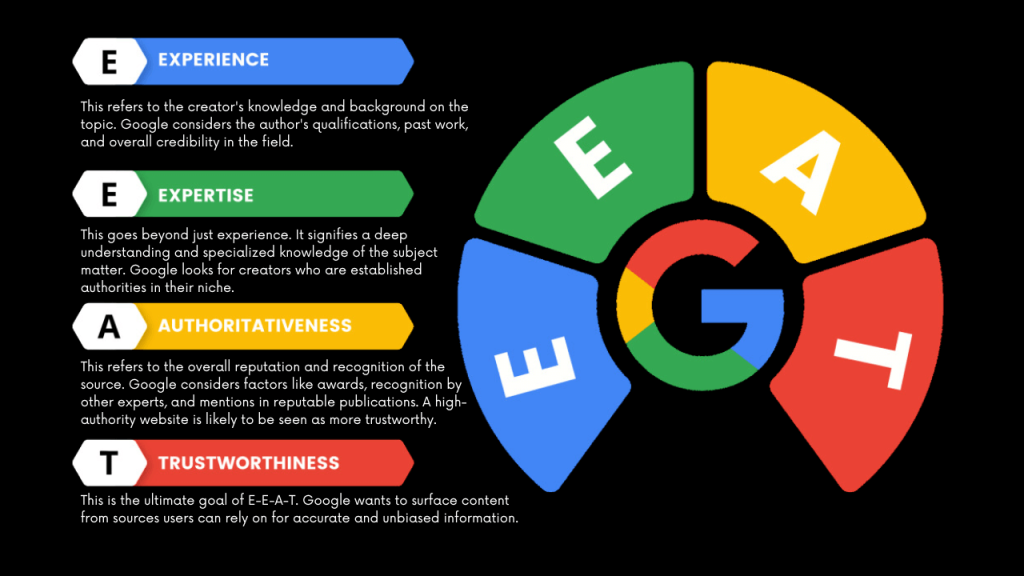
- Experience: Think of this as the author’s knowledge and background. Google wants to see creators who know what they’re talking about.
- Expertise: Here, Google looks for deep understanding of the topic. It’s like the difference between a tourist and a tour guide – an expert can truly explain things.
- Authoritativeness: This means the source itself has a good reputation. Awards, recognition from other experts, and mentions on trusted websites are all good signs.
- Trustworthiness: In the end, Google wants you to find reliable information. This means honest, accurate content from sources you can feel good about.
By focusing on E-E-A-T, Google helps you avoid bad websites and find the most helpful and trustworthy information online. So next time you search, remember – Google is on your side, using E-E-A-T to find the best stuff out there! So, we can say that blogging is not dead yet.
Why Do Blogs Fail?
So, why do some blogs fail? There are some common reasons that bloggers often fall into:
- Being a Jack of All Trades, Master of None: Don’t try to cover every topic. Find your niche, the area you’re passionate about, and build your expertise there.
- Blogger Has No Passion for the Topic: If you’re not genuinely interested in what you’re writing about, it’ll show in your content. Choose a topic that genuinely excites you.
- Blogger Chooses Quantity Over Quality: Churning out endless low-quality posts is a waste of time. Focus on creating fewer, but higher-quality pieces that offer real value to your readers.
- Shady Tactics: Plagiarism, keyword stuffing, and other black-hat SEO tactics might work in the short term, but they’ll ultimately tank your blog’s credibility and search rankings.
- Blogger Failed to Do SEO: On the flip side, ignoring SEO altogether is a recipe for disaster. Make sure to optimize your posts for search engines while still prioritizing quality content.
- Giving Up Too Soon: Building a successful blog takes time and consistent effort. Don’t throw in the towel just before you start seeing results.
- Lack of Creativity within Blog Posts: Even if you’re covering a niche topic, injecting some creativity and personality into your posts can make them stand out from the crowd.
Why Do People Use AI Tools?
Here’s the thing: AI tools aren’t the enemy. They can be helpful for:
- Time-saving: AI can handle some of the more time-consuming tasks involved in blogging, like research and initial drafting, freeing up bloggers to focus on the creative aspects.
- Overcoming Writer’s Block: Hitting a wall? AI can help generate ideas or break down writer’s block.
- Research Assistance: Need some background information for your post? AI can quickly gather relevant data.
- Ideation: Getting stuck in a creative rut is every blogger’s nightmare. AI tools can help spark new ideas and provide fresh perspectives.
- Improved Efficiency: By offloading certain tasks to AI, bloggers can streamline their workflow and potentially produce more content in less time.
- Enhanced Quality: AI can help with fact-checking, proofreading, and even suggesting improvements to writing style and structure. This can lead to higher-quality blog posts overall.
Upgrades to Content Marketing Field After AI Tools
The rise of AI tools like ChatGPT represents a significant upgrade for the content marketing field as a whole. Here are a few ways these tools are changing the game:
- High-Quality Content: AI can’t compete with well-researched, engaging content written by a human with a passion for the topic.
- Content Personalization: AI can analyze user data and preferences to help create more personalized, tailored content experiences.
- Automated Content Updates: AI can help bloggers and content creators keep their published work up-to-date with the latest information and data.
- Improved Content: AI-powered algorithms can help surface the most relevant and valuable content for users, improving discoverability.
- Multi-Format Content Creation: AI can assist in creating content across various formats, such as blog posts, social media updates, videos, and podcasts.
- Building Relationships: You can’t build a loyal readership with a robot.
Limitations of AI Tools
While AI tools are undoubtedly powerful, it’s important to understand their limitations. Here are a few areas where human bloggers still hold the upper hand:
- Emotional Intelligence: AI struggles to fully grasp and convey complex human emotions, making it difficult to create truly resonant, emotive content.
- Creativity and Originality: AI is great at synthesizing existing information, but it has a harder time generating truly novel, groundbreaking ideas and concepts.
- Ethical Considerations: AI tools lack the moral compass and ethical framework that human creators possess, which is crucial when dealing with sensitive or controversial topics.
- Building Relationships: At the end of the day, blogging is about forging connections with readers. AI can’t replicate the authentic relationships that human bloggers can cultivate.
- Search Engine Blues: Search engines are getting smarter, and they can often identify AI-written content. This can hurt your blog’s ranking.
The Effect of an AI Blog Post on Search Engines’ Results
One area of concern for bloggers is how AI-generated content might affect search engine rankings and visibility. The truth is, search engines like Google are getting better at detecting AI-written content, and they often penalize or deprioritize it in search results.
This is because AI-generated content can sometimes lack the depth, nuance, and originality that search engines value. However, if an AI tool is used judiciously as an assistive technology, with a human blogger providing significant input, editing, and oversight, the impact on search rankings may be minimal.
Ultimately, the key is to strike a balance and use AI tools as a complement to human creativity and expertise, not as a complete replacement.
9 Proven Ways to Ensure Blogging is not dead!
Alright, now that we’ve addressed the role of AI in blogging, let’s talk about 9 proven ways some tried-and-true digital strategies for building a successful blog in 2025 and beyond:
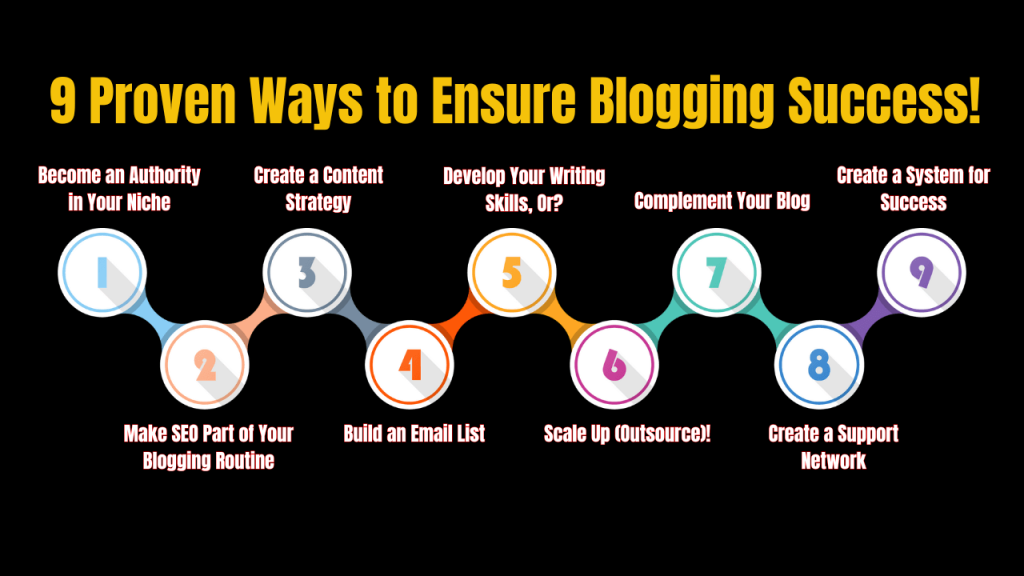
- Become an Authority in Your Niche: Carve out a specific niche and strive to become the go-to expert in that space. This will help you attract a loyal following and establish credibility.
- Make SEO Part of Your Blogging Routine: Optimize your posts for search engines, but don’t sacrifice quality in the process. Use tools like Google Keyword Planner and SEMrush to identify valuable keywords and phrases.
- Create a Content Strategy: Plan out your content calendar in advance, and ensure that each post aligns with your overall goals and target audience.
- Build an Email List: Email is still one of the most effective ways to nurture relationships with your readers and promote new content. Offer incentives for people to sign up.
- Develop Your Writing Skills, Or?: Hone your writing craft through practice, feedback, and continuous learning. Or, if writing isn’t your strong suit, consider outsourcing to professional writers or using AI tools as a starting point.
- Scale Up (Outsource)!: As your blog grows, don’t be afraid to outsource certain tasks, like content creation, graphic design, or social media management. This will free up your time to focus on strategic growth.
- Complement Your Blog: Explore other content formats, like podcasts, videos, or webinars, to complement your blog and reach a wider audience.
- Create a Support Network: Connect with other bloggers in your niche or industry. Join online communities, attend events, and collaborate on projects. A strong support network can be invaluable.
- Create a System for Success: Develop consistent processes and workflows for all aspects of your blogging operation – from ideation to promotion. This will help you stay organized and efficient.
What Type of Blogs Make Money?
Now, let’s talk about the million-dollar question (or at least the potentially lucrative question): what types of blogs can make money?
The truth is, almost any niche or topic can be monetized if you have a large enough audience and the right monetization strategies in place. Here are some popular blog monetization methods:
- Affiliate Marketing: Promoting other companies’ products or services in exchange for a commission on sales.
- Sponsored Content: Creating content sponsored by brands or companies.
- Display Advertising: Hosting ads on your blog and earning revenue based on impressions or clicks.
- Selling Digital Products: Creating and selling ebooks, courses, templates, or other digital goods.
- Offering Services: Providing consulting, coaching, or other services related to your blog’s niche.
Regardless of your monetization approach, the key is to consistently create high-quality content that provides value to your audience. Build trust and credibility, and the monetization opportunities will follow.
FAQs
Is it Too Late to Start a Blog in 2024?
Absolutely not! Blogging is not dead, and there’s always room for new voices and fresh content. As long as you have something unique and valuable to offer, it’s never too late to start a blog.
Do People Still Read Blogs?
Yes, absolutely! While social media and video content have gained immense popularity, blogs still hold a crucial place in the content ecosystem. Many people prefer the depth and nuance that long-form blog posts can offer. Yet, Blogging is not dead.
Will Blogging Still be Profitable in the Future?
Absolutely! As long as there’s an audience and a demand for high-quality content, there will be opportunities for bloggers to monetize their platforms. So, in short, we can say that Blogging is not dead, yet. The specific monetization strategies may evolve, but the core concept of providing value in exchange for revenue will remain.
What kind of blogging is dead? (Practices you should avoid)
Blogs that rely heavily on outdated or unethical tactics like keyword stuffing, plagiarism, or excessive self-promotion are quickly becoming obsolete. Search engines and audiences alike are demanding genuine, high-quality content.
Additionally, blogs that lack a clear focus or niche may struggle to gain traction in an increasingly crowded online landscape.
What Has Replaced Blogging?
While nothing has truly “replaced” blogging in the traditional sense, new content formats and platforms have emerged as complementary channels.
For example, podcasting, video blogging (vlogging), and social media platforms like Instagram and TikTok have become popular avenues for creators to share their content and connect with audiences.
However, these formats often work best when combined with a strong blogging foundation, where in-depth, evergreen content can live and be easily discovered through search engines.
- Top 10 Registered IVF Clinics in Nepal (2025)
- Top-Rated IT Training Institute in Kathmandu, Nepal You Can Trust!
- Step-by-Step Guide: 12 Steps to Create a Marketing Plan for Business Growth
- What are the top highest rating most watched K-Dramas on Netflix right now?
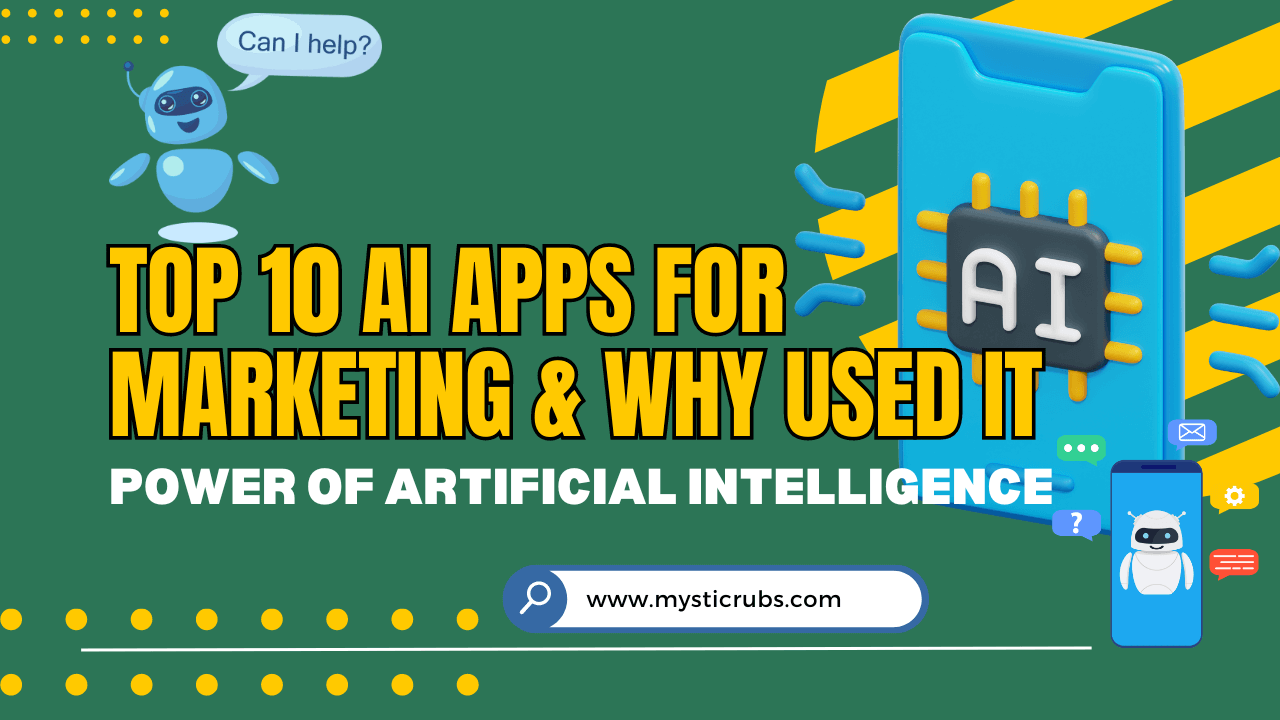
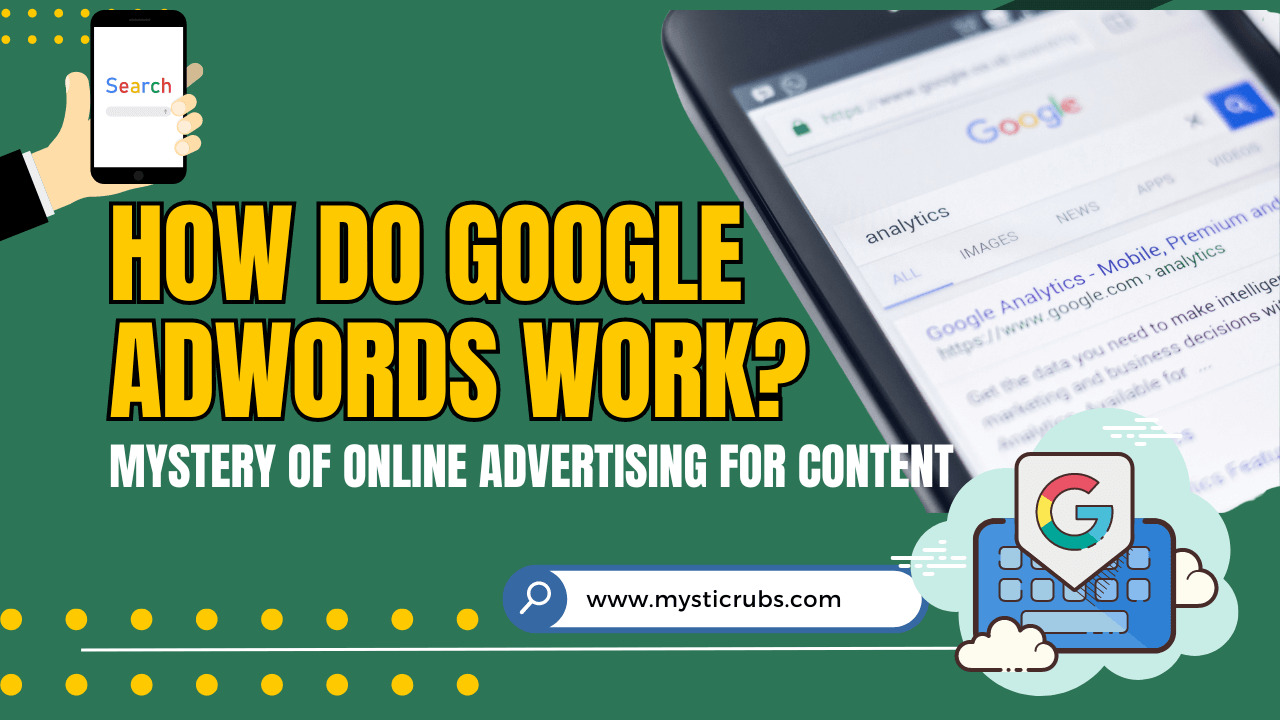
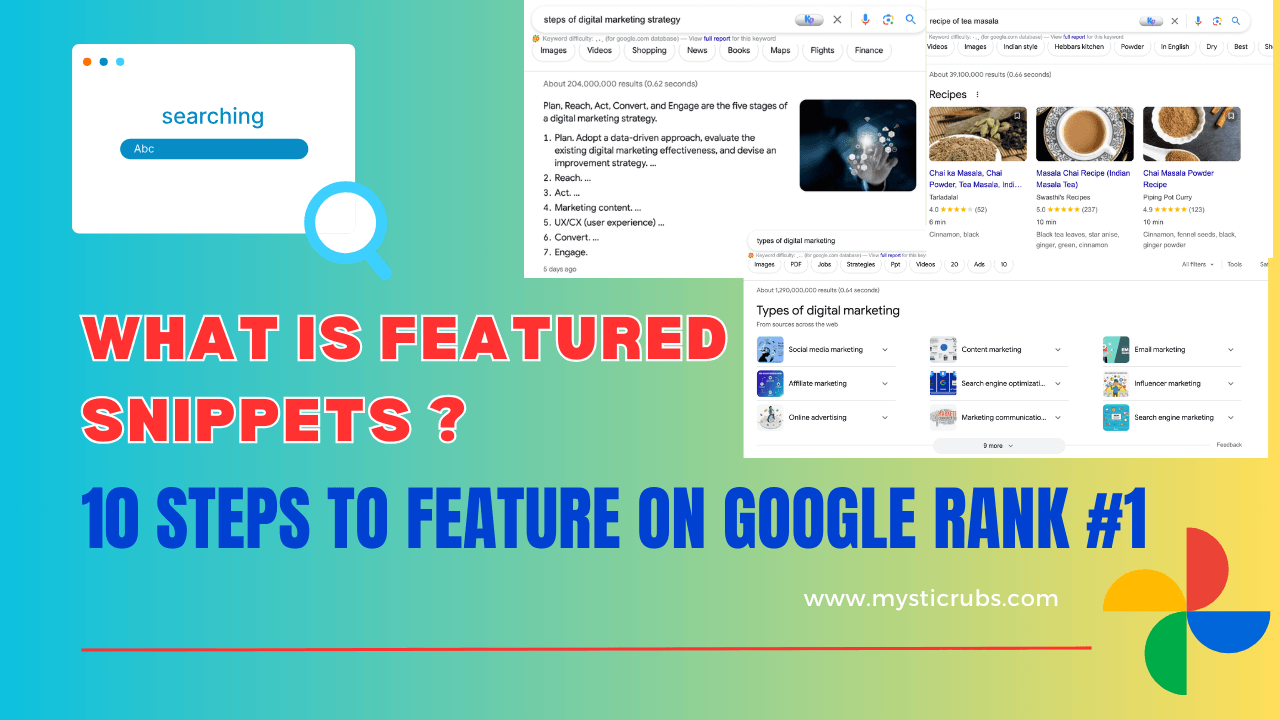
![[2025 Updated] Top 10 Digital Marketing Agencies in Nepal Ranked!](https://mysticrubs.com/wp-content/uploads/2022/05/top-10-digital-marketing-company-in-nepal.png)
